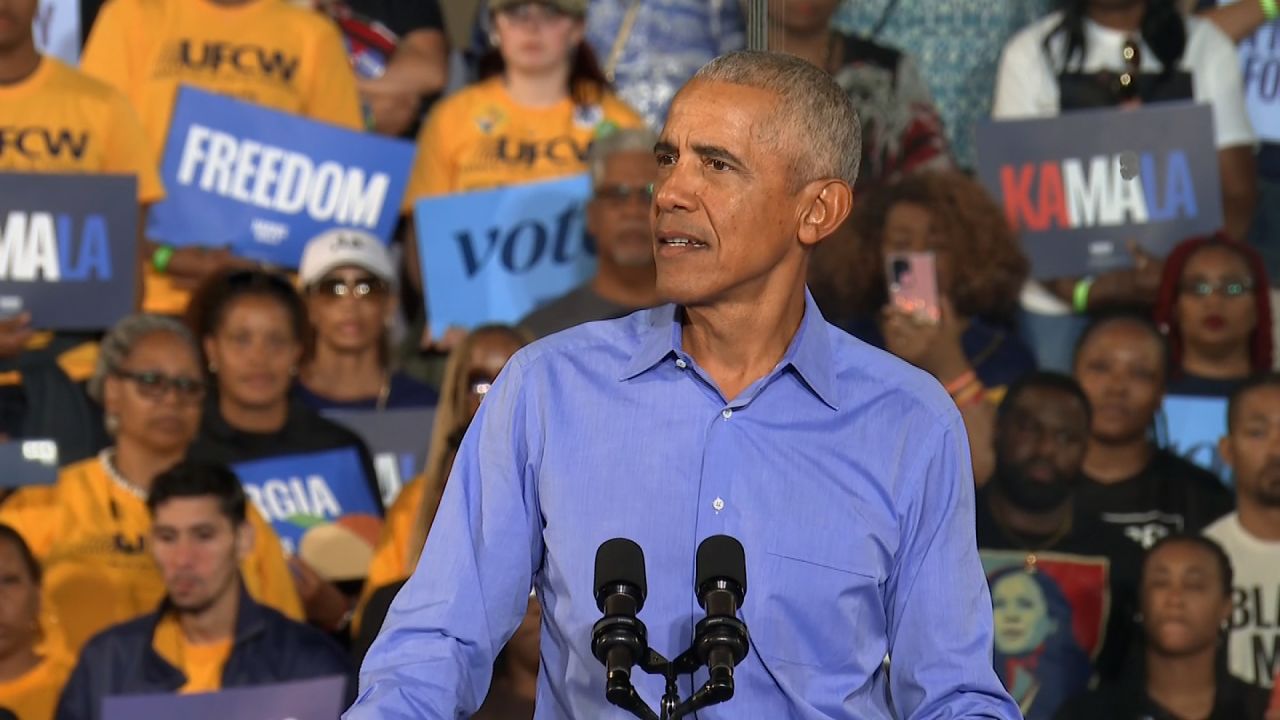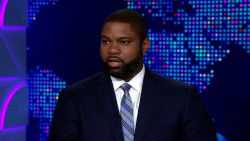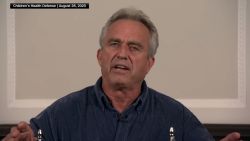Several political lifetimes ago, Barack Obama followed Bruce Springsteen onstage at a huge rally beneath the Cleveland skyline and declared, “A rising is coming.”
That promise, riffing off one of the rock icon’s hits, came true days later, when Obama won the 2008 presidential election.
The band was back together Thursday night, in Georgia. The former president, now 63 and still the Democratic Party’s most compelling figure, and the Boss were trying to push Democratic nominee Kamala Harris over the line in the critical swing state.
Springsteen, before strumming “Land of Hope and Dreams,” declared that Harris “is running to be the 47th president of the United States. Donald Trump is running to be an American tyrant. He does not understand this country, its history or what it means to be deeply American.”
Obama seized on recent interviews in which John Kelly, the Republican nominee’s former White House chief of staff, described the 45th president as an aspiring dictator and said he’d expressed a desire to be served by generals like those who surrounded Adolf Hitler. Trump on Thursday denied the report. “I never said that,” he said in Las Vegas.
But Obama warned, “Just because he acts goofy does not mean his presidency wouldn’t be dangerous.” He went on: “I want to explain that in politics a good rule of thumb is – don’t say you want to do anything like Hitler. … But it is useful because it gives us a window into how Donald Trump thinks.”
Harris reminisced before the huge crowd in Clarkston, a suburb of Atlanta, about her trip to Obama’s first presidential campaign launch in Springfield, Illinois, in 2007.
“I went there to support this brilliant young senator who was running for president of the United States,” she said. “Millions of Americans were energized and inspired not only by Barack Obama’s message but by how he leads, seeking to unite rather than separate us.”
But the sense of imminent change dancing in the frigid air that February morning is missing this year in the grueling slog for every last vote, amid Democratic dread that Obama’s nemesis, Trump, is about to reclaim power.
And Obama’s return to center stage is raising the question of whether, 12 years after his last election win, he has the political muscle to take the once and possibly future president down.

Obama is fired up and ready to go
Obama is feeling “the fierce urgency of now” again. The 44th president is logging more miles on the campaign trail than at any point since leaving the White House nearly eight years ago. He’s implored voters from Pittsburgh to Tucson to Las Vegas to back Harris, and by week’s end, his campaign blitz will have touched down in all seven top battleground states.
“We do not need to see what an older, loonier Donald Trump looks like with no guardrails,” Obama said this week in Detroit. “America’s ready to turn the page. We’re ready for a better story.”
Trump is bristling at Obama’s savage mockery and has taken to claiming that the once-youthful prophet of hope is “exhausted” and “looking a bit older.” That’s rich coming from a 78-year-old about a gym rat rival.
But the nation’s first Black president, who once hailed his generation of voters as a “people of improbable hope,” is sounding far less optimistic as Americans prepare to render a verdict for the third straight time on Trump.
The controlled fury of his speech Thursday night and his intense engagement this week shows that November’s election is more than merely a race for Harris: It’s a battle that will show whether anyone is still listening to him.
It’s been said often that Obama’s legacy is on the line in this election – and it’s true that in a new term, Trump might take another dig at overturning the Affordable Care Act and eradicating the reforms in economic and climate policy that Obama’s onetime vice president, President Joe Biden, put into place as the next step of a Democratic project spanning parts of three decades.

This election may represent the final showdown between Obamaism – a racially diverse and multi-generational movement for grassroots change – and the backlash politics of Trumpism.
But even more than that, Obama these days is sounding desperate to convince his audiences that his life’s project – political change – is even possible and that democracy is still the vessel to effect it.
“Who you vote for matters, not because it’s going to change every problem we’ve got. No president, no vice president, no senator, no governor is going to solve every problem,” Obama said in Madison, Wisconsin, this week. “We’re not going to eliminate poverty overnight. We’re not going to change race relations right away. We’re born into history, and change takes time.”
The man who once told swooning crowds that “we are the change that we seek” delivered a far more pragmatic pitch, warning: “Sometimes I think we expect so much, and then we’re disappointed when everything’s not immediately solved.”

Obama’s voters are taking Harris on trust
Obama’s caustic roasts of Trump, his gift for framing the stakes of an election and the way he has made a far more compelling case for Harris’ election than she has yet managed for herself, shows that his political skills are undiminished. He is paying it forward in the same way former President Bill Clinton did in 2012 to help lift Obama’s reelection bid.
That’s helped his fans to accept Harris – only three years younger than Obama at 60 – as the next recipient of his torch.
Kristen Roland, a high school teacher from Oakland County, Michigan, was awash in nostalgia as she waited to see Obama in Detroit and wore a black 2008 campaign shirt to mark the moment.
“He instilled in America a hope that maybe didn’t exist before,” Roland said. “I think he set the stage for someone like Kamala coming in and maybe completing some of the promises that he made.” Roland doesn’t know if Harris can beat Trump in battleground Michigan but said she was more hopeful than at any point this election season when she saw thousands of people waiting in line to see Obama.
“If he trusts her,” Roland said, “other people should trust her, too.”
In the rallies, Obama makes an affirmative case for Harris, whom he first met two decades ago, but spends the bulk of his time making a defiant case against Trump.
He returns time and again to one of his classic lines: “Don’t boo, vote,” as he seeks to make sense of this moment.
“I get why people are looking to shake things up. I understand that, but what I cannot understand is why anybody would think that Donald Trump will shake things up in a way that is good for you, because there is absolutely no evidence that this man thinks about anybody, but himself,” Obama said Thursday night in Georgia, as he has at his other rallies for Harris.
Obama’s words carry his familiar lecturing tone, which is just fine with Janavus Davis, a Detroit barber, who came to see Obama to remember a now-passed political era.
Davis hears plenty of the skepticism about Harris but believes Obama’s message will allay any fears or concerns about electing the first female president.
“We still listen to him, that’s why all these people are here,” Davis said. “When he was the president, I felt like he kept the people calm. With Kamala now, it’s time for a Black woman. I think it’s possible. I think it should happen.”
Yet for all his political skills, Obama has sometimes been unable to transfer his idiosyncratic appeal to other leaders. He couldn’t make Hillary Clinton president despite campaigning for her in the final days of the 2016 race. And the fact that he is still the Democratic Party’s prominent political rock star, 16 years after his first election as president and eight years after handing over the White House to Trump, says as much about his party as it does about Obama’s aura.
Harris is facing a far more challenging environment than then-Sen. Obama encountered in 2008. He was the insurgent after an eight-year Republican presidency marred by George W. Bush’s failures in Iraq and New Orleans, which left the country desperate for change. This year’s Democratic nominee is an incumbent in an unpopular administration. Obama’s young voters intoxicated by hope in 2008 are entering middle age with the same struggles with high grocery prices and mortgage rates that Trump’s voters are experiencing. And while Springsteen is America’s poet of the working class, many blue-collar voters have deserted Democrats in recent elections for Trump’s populist GOP.
Then there’s the question of whether heavyweight endorsements from ex-presidents and celebrities like Springsteen – and Beyoncé, who will line up with Harris in the closing stretch – really make a difference. Springsteen is no political newbie – he headlined a massive rally for John Kerry in Madison, Wisconsin, in 2004, before the Democratic nominee lost to Bush. So while big event’s like Thursday flash back to the rock and political anthems of yesteryear, there’s no guarantee they work politically.

CNN political commentator and Republican operative David Urban, who choreographed Trump’s critical win in Pennsylvania in 2016, remembered a star-studded rally in Philadelphia for Clinton on election eve that year, with Obama, Springsteen and Jon Bon Jovi.
“The next day, guess what happened? We whooped Hillary Clinton in Pennsylvania. … If I was (in Georgia), I might go hear Bruce Springsteen tonight, but I don’t think it matters squat for November 5,” Urban told CNN’s Erin Burnett.
Still, the likelihood that this election will be decided by thousands of votes in a few states means that even if Obama and Springsteen get a few people to the polls, it could make a difference. And the former president is about to be upstaged by the biggest political star in his family. Former first lady Michelle Obama – who has become a female icon – will campaign with Harris on Saturday in Michigan.
At this point, marquee events are more about driving a party’s voters to the polls than changing minds. That’s a message Obama learned 16 years ago. And he drummed it out Thursday in his first moments onstage.
“Go vote, return your absentee ballots,” he cried.



























